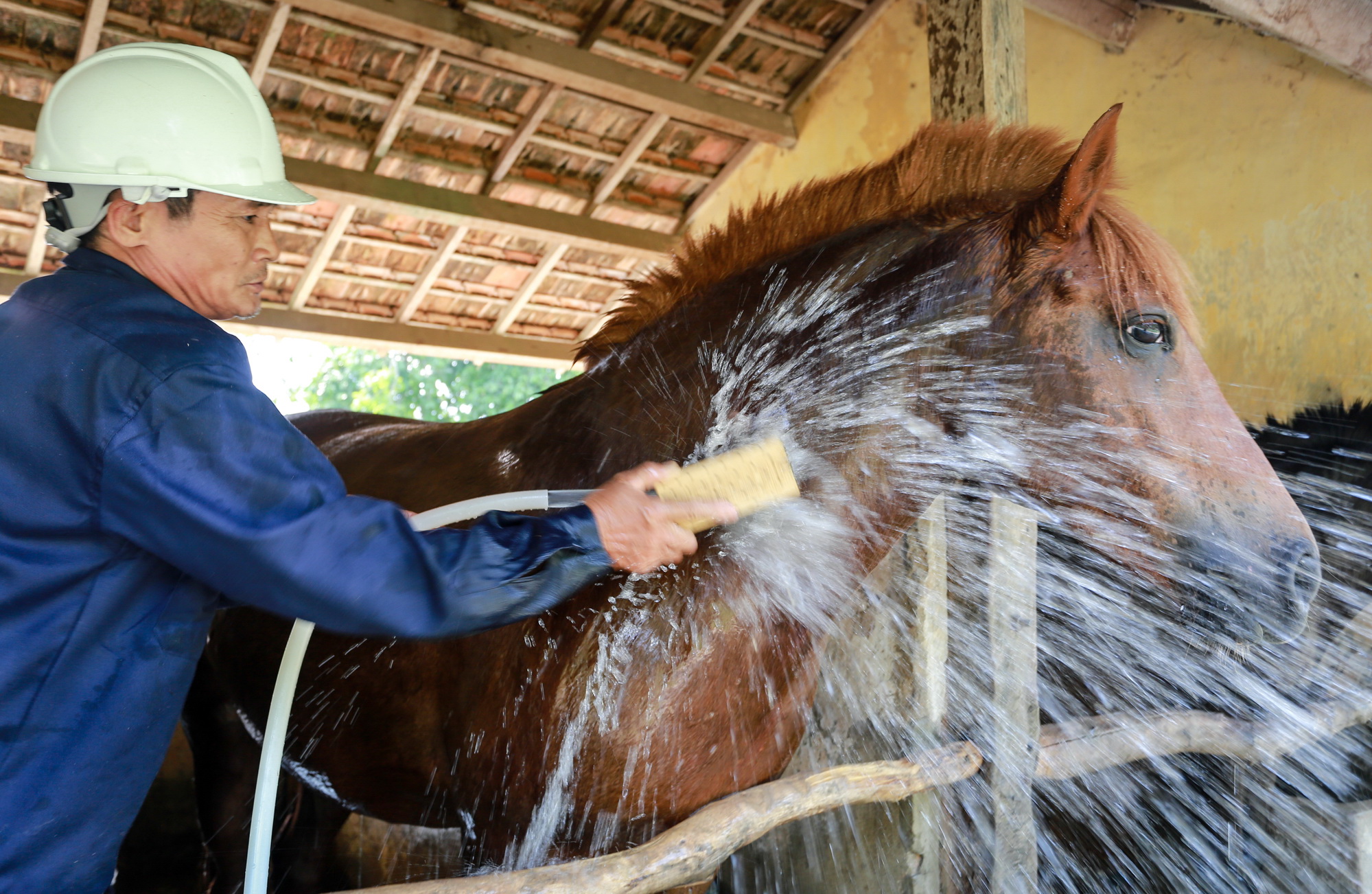The Suoi Dau ranch in the central province of Khanh Hoa, with a total area of 125 hectares, is currently taking care of more than 300 horses, blood from which will be used to produce serums against various types of viruses.
The ranch contains Southeast Asia’s biggest herb of horses, which belong to Khanh Hoa’s IVAC, a health facility that aims to strengthen vaccine production capacity for pandemic prevention.
It’s like child care
In the early morning, six workers who are responsible for taking care of the horses feed them the freshest grass, while another group of people clean the horses’ cages and water and feed troughs.
Every day, a horse consumes 15 to 18 kilograms of fresh grass and 2.5 to 3 kilograms of special food which includes bran, rice, corn, soybeans and other vitamins. Workers also bathe the horses before giving them their afternoon meal.
Tran Thanh Tinh, who has been looking after Suoi Dau horses for 32 years, asserted that their food must be clean, healthy and meet quality standards. Veterinarians are often invited to the ranch to carefully monitor the horses’ health.
Nguyen Van Minh, the head of the ranch, stated that the horses are painstakingly selected and raised commensurately with ISO 9001-2008 standards. They must be from 4 to 6 years old, weigh over 230kg, and undergo a comprehensive health check.
“Qualified horses will be raised in an isolated area for six months. Horses with blood that is qualified to be used for producing serum will be given a code to track them before they are integrated into the group of other horses,” Minh said.
Saving lives
The horses are thoroughly cared for, as their blood will be utilized to produce vaccines against dangerous diseases such as tetanus, diphtheria, rabies and complications from snakebites.
“Both the center’s technicians and the horse serum production process must follow the ISO 9001-2008 standard,” Minh confirmed. Each year, Suoi Dau produces 10,000 to 12,000 liters of crude serum, which will later be turned into qualified medication.
According to Minh, IVAC successfully produced two types of serums against snakebites in August 1999, thus saving thousands of people who were bitten by snakes each year. The serums were first officially used in 2004.
In 2009, IVAC improved its production process, setting a new record as the facility offered the market more than 1 million doses of anti-tetanus serum. The quality of the anti-rabies serum and anti-snake venom serum was also upgraded.
IVAC has established a sales department which helps better promote its high-quality serum. “Our anti-tetanus serums (SAT) are ready to meet the high demand of the local market, as well as to potentially enter the ASEAN market,” Minh proudly said.
| Suoi Dau ranch was established in 1896. It was formally an agricultural station where its founder, Alexandre John Emile Yersin, bred different types of animals and cultivated plants to produce vaccines and serums. |




















































